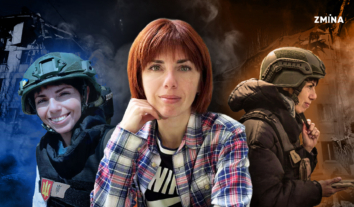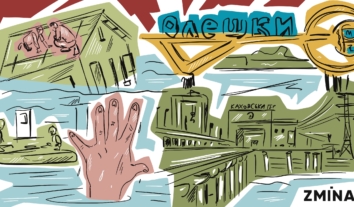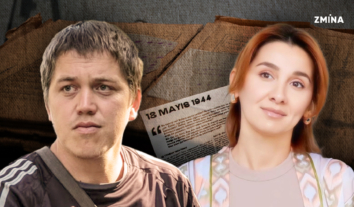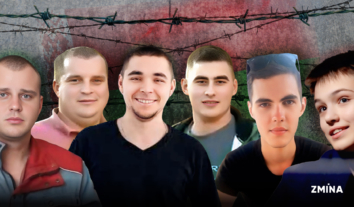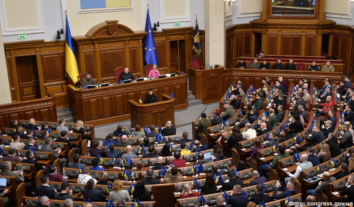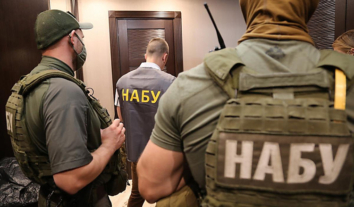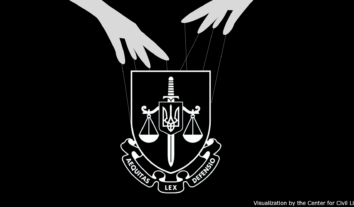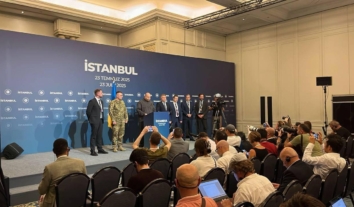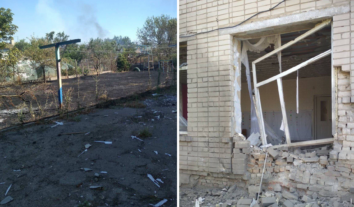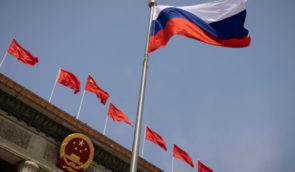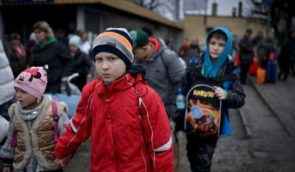Ten years of occupation of Crimea: memories of Crimean journalists on how it began
Taras Shevchenko’s birthday і is significant in civic resistance to the occupation of Crimea. In 2014, on March 9, Crimeans came to the monument to Taras Shevchenko in Simferopol with flowers and posters to declare that they did not support the war and the armed Russian military on the streets of their hometowns. The Crimeans were in danger because even then, every protest was accompanied by attacks by aggressive Russian figures, pro-Russian activists, and militants.
During the ten years of occupation, Russia has built a large-scale system of repression against those who disagree with the occupation of the peninsula. As a result of politically motivated persecution, more than 200 Ukrainian citizens are currently behind bars, including 15 citizen journalists.
Among these Kremlin prisoners are Nariman Dzhelyal, the first deputy chairman of the Mejlis of the Crimean Tatar people; citizen journalists Iryna Danylovych and Vladyslav Yesypenko; civic activist Server Mustafayev; and artist Bohdan Ziza.
To date, the UN Human Rights Monitoring Mission in Ukraine has documented 104 cases of enforced disappearances and 55 cases of torture of pro-Ukrainian activists in Crimea.
On March 9, 2024, during the discussion in Kyiv, “Ten Years: Crimean Resistance Behind the Veil of Silence,” Crimean journalists shared their memories of how Russia deployed its military operation to seize the Crimean peninsula.
The event participants also watched the documentary by the reporter’s team of Crimea.Realities news portal titled “The first pro-Ukrainian action in Simferopol after the Russian troops’ arrival: risk, “traitors of Crimea,” and abduction.”
In their memoirs, witnesses to the beginning of the Russian aggression refuted the claims of the aggressor country’s propaganda that it gained control of Crimea peacefully and with the consent of Crimean residents.
Read how some Crimean journalists survived the beginning of the occupation based on their memoirs.
Valentyna Samar, Editor-in-Chief of the Center for Investigative Journalism
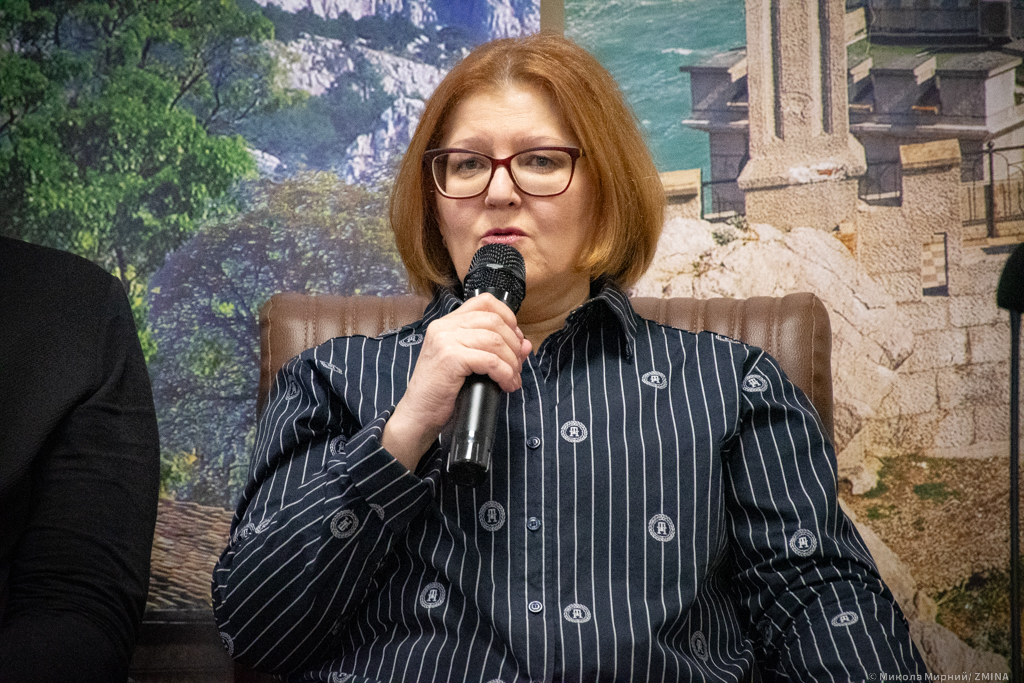 Valentyna Samar
Valentyna SamarAt that time, the attention of the Ukrainian authorities and ordinary people to Crimea was minimal. The connection with the mainland was weak. It was a hernia, as Andriy Klymenko, head of the Black Sea Institute for Strategic Studies monitoring group, said. “There was a fragile connection to Crimea, a small channel for communication and relations, including information and political ones. So, many media outlets on the peninsula were focused on the Russian-speaking audience, on Russia, and on meeting the needs of this audience.
In 2014, the resistance to the occupation of the peninsula and human rights violations was precisely civic. No wonder there are no prominent politicians among us at this event, nor were there any at the March 9 protests ten years ago.
It so happened that political forces organized many people for the rallies in Kyiv, for the Big Maidan, because there was a need to pressure the authorities. At the same time, there were practically no people at the mini-Maidans in the regions, especially in such problematic regions as Crimea, Donetsk, and Luhansk. They were simply killed there, just as Euromaidan activists were beaten and persecuted in Simferopol, Feodosia, and Kerch. They were persecuted even if these people were not Euromaidan activists but held different views and were pro-Ukrainian or pro-European.
Russian intelligence services were actively working in Crimea, and unfortunately, Ukraine allowed Russian intelligence and counterintelligence to operate freely. The formation of the so-called “Crimean self-defense” and “Sevastopol self-defense” units began in late December and early January 2014. In February of the same year, units were organized, armed, and controlled by the Black Sea Fleet Command in Sevastopol, led by Russia, which became the driver of all the events of the so-called “Russian Spring.”
When we stood at a rally near the Cathedral of the Holy Equal-to-the-Apostles Princes Vladimir and Princess Olga in Simferopol on February 23, the day of Noman Çelebicihan’s memory і , and commemorated the people who died on the Kyiv Maidan. The Ukrainian government had already been overthrown in Sevastopol, and there was no reaction. Then, the export of violence from Sevastopol spread to the entire Crimean peninsula. Because the Black Sea Fleet was allowed to move beyond the military base in Sevastopol, the Russians took over the whole of the Crimean peninsula in just a week.
The public resistance was joined by people who had nothing to do with politics before but were proactive and knew what they wanted. The task of journalists, of course, was to support these people and show what was happening. In the meantime, not only the Russian military landed in Crimea, but also journalists who produced their image.
We monitored the attacks on journalists and activists who held protests or covered them and found that during March 2014, there were about 100 attacks, robberies, destruction of equipment, beatings, and illegal detention in improvised places of detention, roughly speaking, in basements in Crimea. These were violations of freedom of speech and violations of journalists’ rights. There were terrible cases of torture that happened to Andriy Shchekun, Anatoliy Kovalskiy, and many activists who came from Kyiv.
In those days, the airport was mainly occupied by flights from Moscow. There were almost no planes from Kyiv. I can count on one hand the Ukrainian parliamentarians who dared to come to Crimea to support the Crimean residents and broadcast on the two TV channels that remained independent of the occupation authorities on the peninsula at that time, which also aired our programs: ATR and the Black Sea Broadcasting Company.
On March 1, we were indeed the first civilian, non-governmental media outlet to be attacked and seized by people without insignia. We recognized them then as pro-Russian marginalized people, who at that time were being fed by Viktor Medvedchuk, who seized our media center. We managed to get out of our office in the center of Simferopol only with the help of foreign journalists.
We had two days to regroup after that but decided not to leave Crimea and stay on the peninsula as long as possible to support our people and the Ukrainian military. We filmed reports about the blocking of Ukrainian military units by Russian forces, investigations for the Slidstvo.Info project on murders and abductions of Crimeans, and covered the work of the occupation administrations. These reports were also aired on national TV channels.
Thanks to the solidarity of foreign journalists and international organizations, Dunja Mijatović і , we held out until August 1, when the occupiers finally came and took all our equipment, including TV and office equipment. All we had to do was wait for them to read the contents of our computers to prosecute us under Russian law. So we decided to evacuate to Kyiv.
The conclusions from that time are very disappointing because many mistakes made then have not been worked out yet. The Ukrainian authorities that came off the Maidan stage not only did not resist back then, in February-March 2014, they continued to weaken the resistance of civil society in Crimea with their inept policies towards the occupied Crimea. I am referring to the regime of the free economic zone “Crimea,” which made the residents of Crimea and Sevastopol non-residents of Ukraine.
How many tears have been shed and efforts made by Ukrainian and international organizations to abolish discriminatory norms and stop supporting the occupation regime in Crimea by selling electricity to Crimea and allowing billions of dollars worth of goods to be transported there. The Ukrainian government has allowed Russia to gain a foothold in Crimea, create a giant military base there, and use Crimea to attack Ukraine in 2022.
Iryna Sedova, Expert of Crimean Human Rights Group and Former Journalist of the Breeze TV & Radio Station in Kerch
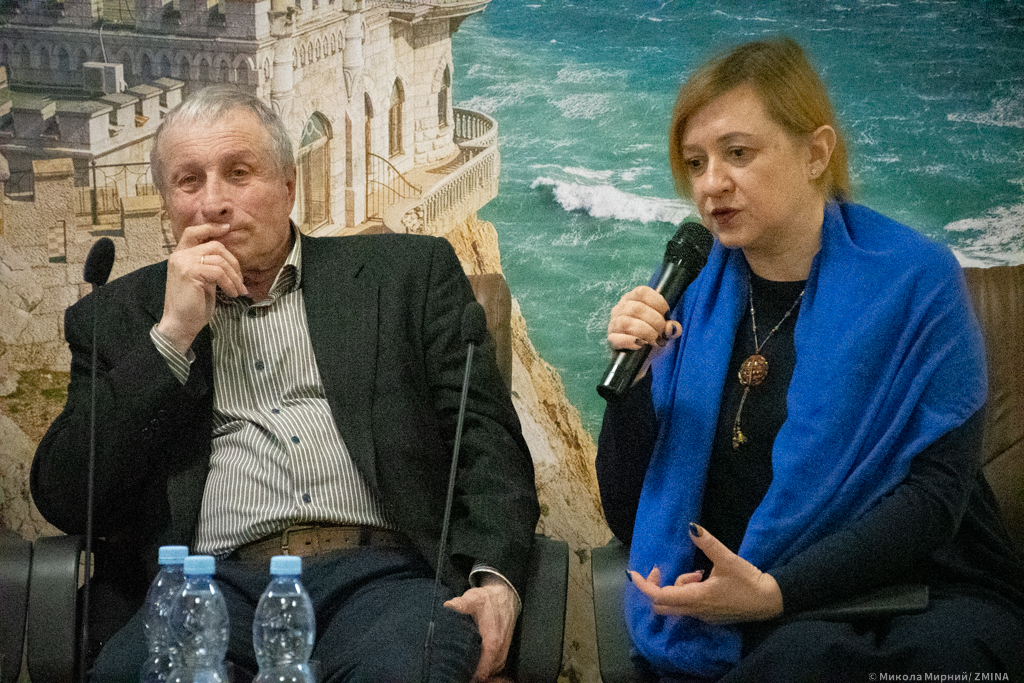 Iryna Sedova (right)
Iryna Sedova (right)During the Euromaidan, I came to Kyiv, and my colleagues and I covered what was happening there and directly participated in the Revolution of Dignity. I realized then that I could not just watch these events.
After people entered Yanukovych’s estate in Mezhyhiria, we decided to take part in the Maidan, which took place in Crimea on February 22, 2014.
On that day, the organizers of Euromaidan in Kerch invited me to speak as a well-known journalist in the city, as my publication was conducting anti-corruption investigations.
When I went to the tribune with the Ukrainian flag, I was attacked by thugs bribed by the local police, whom the Russian Federal Security Service (FSB) most likely recruited. My colleagues told me that they saw these thugs being paid money by local police officers.
After that, threats began, and there were no more pro-Ukrainian rallies in Kerch because one person who did not have time to escape was beaten by thugs almost to the point of intensive care.
Only pro-Russian rallies were held in the city, allegedly by pro-Russian activists. But we knew that they were recruited agents of Russian intelligence. They would arrive in military trucks, disguise themselves as Cossacks, local “self-defense,” and stay in churches of the Moscow Patriarchate, where the FSB also recruited the priests.
Watching and filming all this, our editorial staff received threats. Olena Lysenko, the head of the Breeze TV channel, was promised to get her garage burnt down, and I was promised to destroy my house. But we still tried to report on the events and show people that it was not just some pro-Russian Crimeans who were speaking at these rallies; that it was about an actual occupation. After all, starting from March 1, there were Ural trucks with Russian license plates at the Kerch crossing, and the entire so-called “self-defense of Crimea” spoke with a Moscow accent. So we were right.
We tried to bring this to the public, to make it public, but it was difficult to do so because they [Russian occupying forces] did not have identification marks.
When the illegal “referendum” was taking place, I received constant threats, so I decided to leave Crimea to be able to continue my journalistic, civic, and human rights activities on the free territory of Ukraine. Meanwhile, an armed occupation took place in Crimea, which we filmed and tried to show to the world, but unfortunately, the world did not react appropriately.
People sometimes say that it was an annexation. But I think this is a misnomer because annexation implies that Crimea voluntarily joined Russia, whereas, in reality, it was an armed occupation.
Olena Solonyna, Anchor of the Breeze TV & Radio Station in Kerch
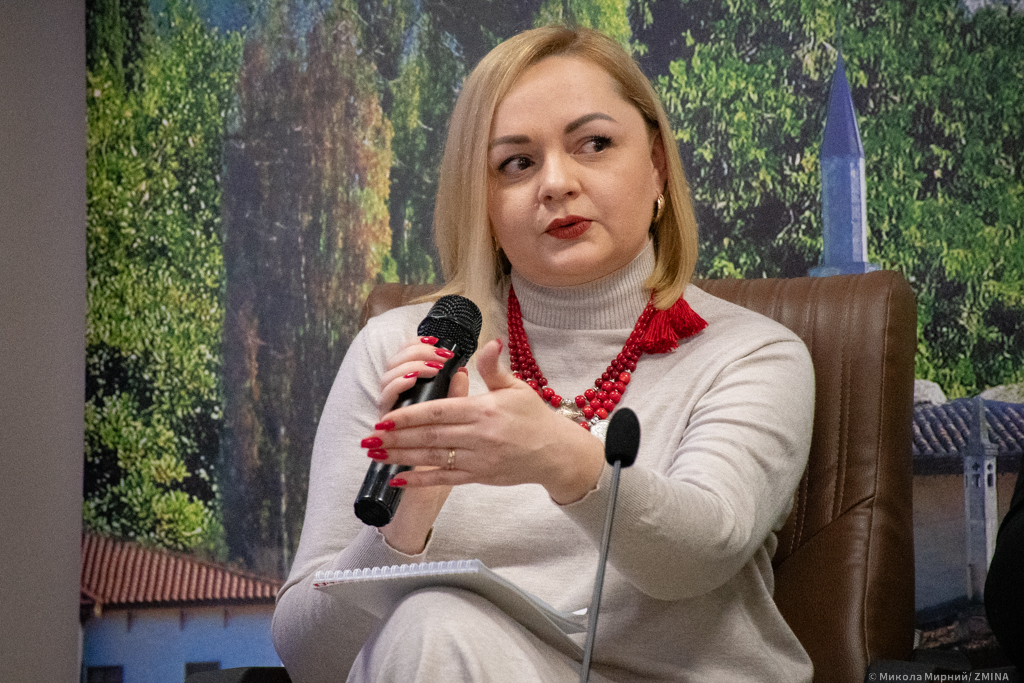 Olena Solonyna
Olena SolonynaThe Breeze TV and Radio Company belonged to the Ministry of Defense of Ukraine, and we were the only fully Ukrainian-language TV and radio company on the peninsula. In addition, we had a Crimean Tatar broadcasting department, which produced the programs Yildiz and Ana Yurt .
We primarily covered the activities of the Armed Forces of Ukraine and the Navy of Ukraine. Because of this specificity, we attracted negative attention.
When the events of Russian aggression unfolded, our last television program was broadcast on March 7, 2014. On March 8, we stopped having television, only radio.
I was on the air on March 9, 2014, Taras Shevchenko’s birthday. At 10.20 a.m., I announced we would have a radio program dedicated to the poet. Immediately after that, I went to the correspondent’s room, where an on-air controller monitored the program’s quality and heard something wrong. I checked the airwaves, and there was Radio Vesti Rossii.
I call my boss, and he goes to our broadcasting center “Crimea,” where machine gunners meet him. Most likely, they were soldiers of the 850th Marine Brigade of the Russian Federation. The center was seized by force. We were no longer able to broadcast anything, but we decided that we would continue to resist
Our resistance went online. We started making our media products independently. We realized that we had to do something further to convey information to people, to our military, who were already blocked in their units, that no one had forgotten them, that they were supported, and that Ukraine and its people were with them.
I wouldn’t say it was easy. It was scary, and there were personal threats. Some people came to our executive to persuade us to go to the other side and work for the Ministry of Defense of the Russian Federation.
After the illegal ‘referendum’ on March 19, they came and announced: either you stay here and take Russian citizenship and swear allegiance to the ‘Crimean people,’ or, please, you have a vast territory, go to the mainland. Everyone made their own decision.
Our team consisted of up to 75 civilians and 15 military personnel. All officers left except for one, our chief engineer, Captain Oleksiy Tymchuk, who betrayed us.
On March 21, everyone who stayed there re-signed the contract. What motivated me to leave? I am a Ukrainian; I have a passport from Ukraine, where I was born and raised, where my parents live, and where my relatives are buried. How can one betray one’s homeland? It was impossible for me.
Mykola Semena, Crimean Journalist, Former Kremlin’s Political Prisoner
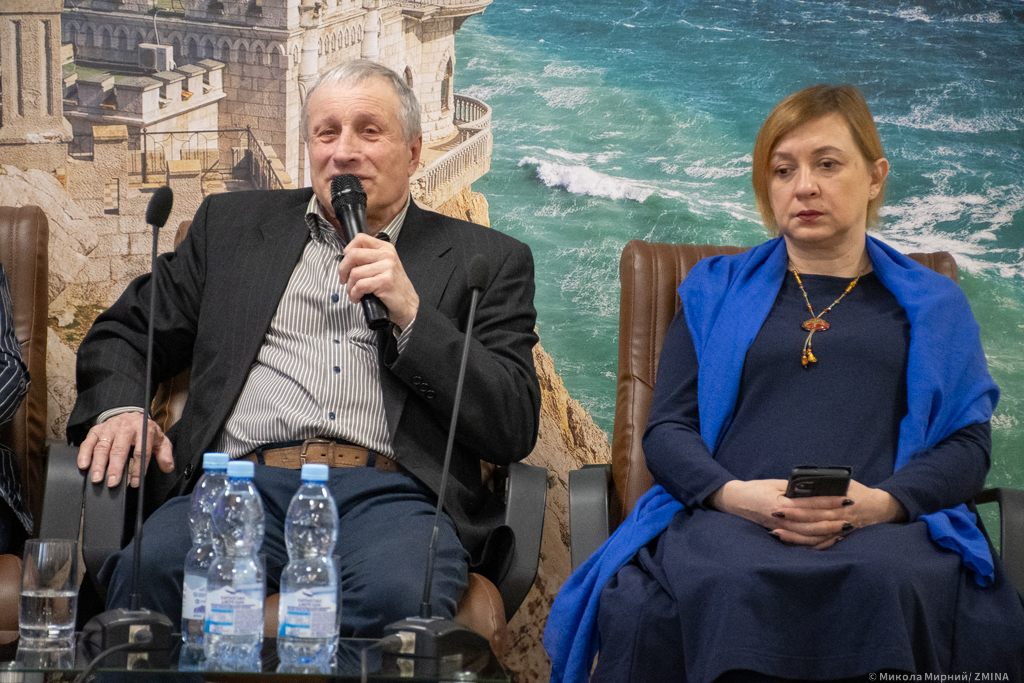 Mykola Semena (left)
Mykola Semena (left)In 2014, most people were romantics in a sense. It was the twenty-first century, and democracy reigned supreme. In Ukraine, we were used to freedom of speech, when we could prepare any material, get any information, and achieve justice.
Even though Russia had seized the peninsula, we thought the occupation would continue until Ukraine got together and threw these occupiers out of the Kerch Strait. We did not know then that it would be very long. I remember my confusion when one of my colleagues said during the discussion that the occupation would last long. He was closer to the truth than us, guided by romantic considerations.
We thought: we fought the Ukrainian bureaucracy, so now we will fight the Russian bureaucracy. But Ukraine should not leave Crimea. We, as Ukrainians, are staying there because it is our outpost. We didn’t think that in the twenty-first century, the situation could develop into Russian fascism.
Many journalists stayed in Crimea then because we could not imagine any other behavior. We were at work at the time.
I was in Crimea as an in-house correspondent for the newspaper Den’ [Day] until Radio Liberty launched the Krym.Realii project. I didn’t even think about leaving. I had to fulfill my professional duties and publish materials. If I left, what would the editorial office do? They would send other journalists to do the same job. That’s why I didn’t even think about leaving.
It was hard. The official Crimean television harassed us. Krymska Pravda published articles about Volodymyr Prytula and me on the front page under the headline “The Road to Magadan.” We were removed from all sources of information, not invited to, and even banned from attending press conferences.
We got information in an underground way. That’s how I worked in Crimea until 2016, when a spyware program was installed on my computer with the help of a provider. All my pseudonyms, all my articles were already reprinted and put in a big pile on Ivan Franko Boulevard in Simferopol ">і .
On April 19, 2016, at six o’clock in the morning, my house was searched to find all the materials I had sent to the Ukrainian media on my computer. It was clear that it took them several hours to find everything.
Immediately, the FSB took measures to take a non-exit pledge called a “pledge of non-exit and proper behavior” after the court hearing. It prohibited me from writing and taking pictures. This wasn’t easy to endure morally, but somehow, I held on.
Of course, there was all the evidence that I had prepared these materials, and we decided to go to trial. Here again, we were romantics, hoping that in fascist Russia, there could still be an impartial court that would observe the standards of a fair trial. This was the beginning of the repressions, which were not yet so severe. No one was given a “trial” for 19-20 years.
We did not think that the information space of Crimea would come to the point where it did – to complete falsification of reality and disinformation. Most of this would be done, in particular, by our colleagues who betrayed their homeland.
Recorded by Mykola Mirnyj, journalist of the ZMINA publication for the newspaper “Day”

